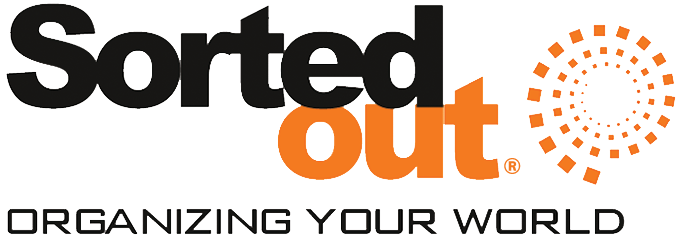If you’re unfamiliar with estate planning, it is simply planning ahead and lining things up (like finances and properties) for asset transfer following your passing. It’s not something that makes you feel all warm and fuzzy inside as you tackle it, but it should at least leave you with some mental clarity and peace-of-mind, knowing that your family and assets will be carefully taken care of down the road. And what better time than the beginning of the year to get started! One might ask, “Where do I even begin?” and that’s the answer I hope to give you by the end of today’s blog.

1. Where to begin when estate planning?
I want to start by saying that you should absolutely work with a professional when it comes to estate planning. They are trained and know exactly what needs to be done. Estate planning is a very complex process and the last thing you want to do is leave behind a giant mess of financial issues, etc. for your family and heirs to have to deal with. A professional will be able to make sure you have all proper documentation in place.
Professional help aside, a good starting point is to make a will if you do not already have one. Life is full of uncertainties and unfortunate situations, and it’s important that everything is taken care of in preparation for those events. A will allows you to specify how you want your assets distributed and communicates your final wishes; having a will leaves no room for error or misunderstanding. If you have children or grandchildren, it gives you the opportunity to ensure they and their futures are cared for. Should your descendants be young, it also allows you to appoint a guardian.
2. Living trust
Along with a will, you’ll want to make sure you have a living trust in order as well. A living trust is important if you ever become unable to speak on your own behalf. It gives you the opportunity to appoint whomever you wish to manage your assets & receive them upon your passing. A living will also ensures your wishes are clearly known and serves as a directive for medical treatments & life-prolonging measures (such as staying or being taken off of life support, etc.) if you are ever unable to voice your own wishes on the matter.


3. Power of Attorney
With that said, you will also want to make sure to have a medical power of attorney for the same reason; you want to designate someone to make decisions about your health/medical care should you be unable to. Many people choose a spouse, parent, or descendant to fill this role. What’s most important is that you choose someone who will know and honor your wishes in case of a medical emergency.
Another role you’ll want to fill is the financial power of attorney. The appointed person will be the responsible party for handling your financial affairs if you are unable to communicate on your own. The financial power of attorney will also pay bills & handle insurance claims on your behalf. Similarly to my statement above, you want to make sure that whomever you appoint as a power of attorney is someone you trust and who will honor the decisions you’ve already made.
4. Ensure beneficiaries
About every two years you should ensure the beneficiaries on your retirement and insurance policies. These beneficiary designations oftentimes override the language written in a will, if there are any discrepancies or contradictions. If they aren’t up-to-date, you run the risk of losing the fulfillment of your final wishes. Specific times you’ll want to update these policies are in the event of losing a loved one or change in marital status. You should also designate a (POD) pay-on-death beneficiary for bank & financial accounts, and a (TOD) transfer-on-death beneficiary for assets such as real estate, vehicles, etc. Speaking of insurance, make sure you are covered! You’ll want to have adequate insurance to secure coverage for the following: disability insurance, homeowners insurance & life insurance.


5. Charities and donations
If you have any causes or charities you would like to be supported upon your passing, make sure to let your heirs or beneficiaries know. You may choose to set up a trust that pays out to your heirs during your lifetime & any remaining amount donated to your favorite charity upon your death. Also, choosing to include charitable donations in your estate planning in some specific cases will allow you to reduce the estate tax burden left for your family. If it’s important to you that your legacy and contributions continue on, this will be something you want to consider when estate planning.
6. Assign a reliable executor
An executor will be legally obligated to act in your interest & be responsible for making sure all of your assets in your will are accounted for (and properly transferred) and your final wishes fulfilled. They will also be the one responsible for making sure your debts are paid off, including any taxes. If you don’t do it, the court will. Consider someone who is financially responsible & familiar with financial matters. Also consider someone who has an understanding of the basic principles of estate law, such as an attorney, accountant or a VERY trusted family member. The person you choose must be over the age of 18 and be in no major legal trouble (no felonies, etc.) Handling final assets and estates can be a heavy job for someone who has just lost a loved one, so oftentimes professionals are deemed the executor over a family member.

7. Guardian vs. Conservator for children and family members
If you are responsible for the well-being of others (young children, elderly parents, etc.) you absolutely need to consider them in your estate planning process. Determining who will take on your responsibility after death is likely the heaviest of decisions needing to be made during this process. To reiterate: this person must be someone you absolutely and completely trust.
When it comes to determining responsible parties, you have two route options: guardian or conservator. A conservator (if you chose to appoint one) is someone who would be responsible for taking care of their needs & living arrangements, whereas a guardian is responsible for the dependent. If you don’t choose one of these, the state will. Make sure to inform this person ahead of time; the one you choose should have stable living arrangements, agree to the role and responsibilities, and even someone who may share your same values or parenting style.
During the estate planning process, it is important to also have all documents & paperwork in a secure, organized space so you can easily find what you need when you need it. Setting up a filing system for these documents is important & will limit any additional stress when the time comes that you, or your family, needs it.
It’s a lot of information, but once you get through this process you will be all set should anything unfortunate happen. Life is unpredictable, but the security of your legacy doesn’t have to be. Again, please reach out to licensed professionals for assistance throughout this process. I hope this article is full of good tips for getting organized when estate planning, and is helpful in giving you a good starting point.
If you have any other tips or questions, please leave them in the comments below or send us an email at info@sortedout.com. If you are needing any assistance sorting, organizing & filing your estate documents, give us a call. We would be honored to help!
Looking forward to hearing from you,
Tonia






